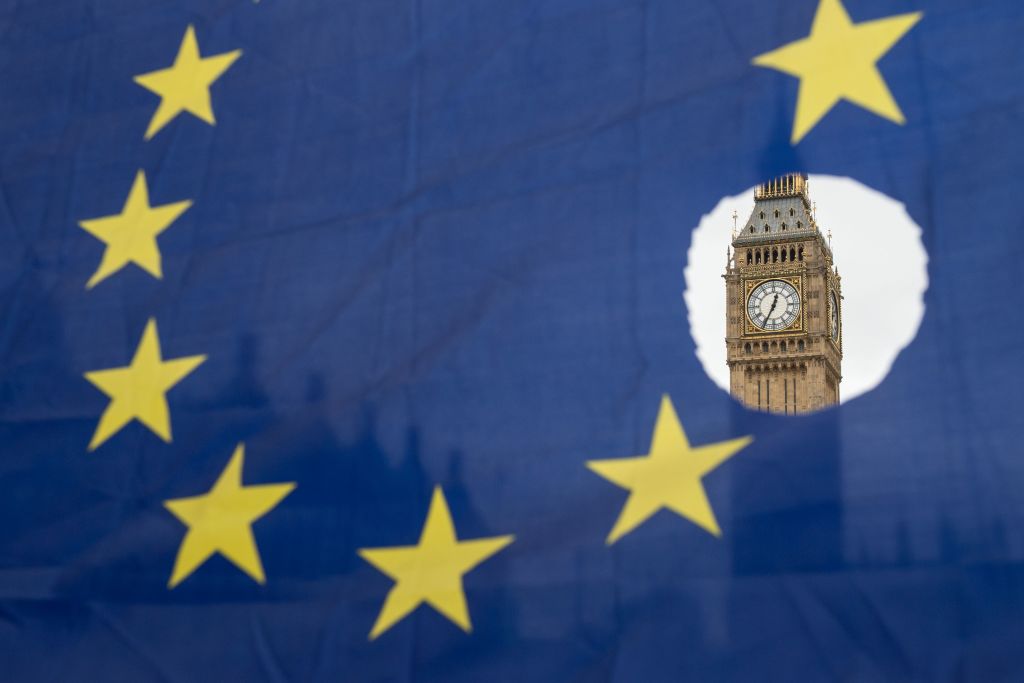Much has been said in Britain about the prospect of no deal over the past few days — the economics, arguments over sovereignty, the views of Conservative MPs, possible long-term gain, and the views of the voters. All will be important to the UK government’s final decision. Looking only at the voters, the established wisdom seems to be that a no deal course gives Boris his moment of facing down the EU, and that the former ‘Red Wall’, the seats in the Midlands and North of England picked up from Labour in 2019, would welcome such a move. This, I think, is an incorrect assumption.
Twelve months ago, no deal may well have been welcomed by a sizable proportion of voters. Brexit was the only show in town. The Conservatives held a towering 30-point lead on the issue over Jeremy Corbyn. As frustration about the Brexit process grew and grew, anything to break the logjam was looking attractive. Swathes of the press were likely to be on board. There was also, clear in focus groups, a strong sense that voters were willing to give Boris Johnson and the Conservatives the benefit of the doubt.
The world has changed. Firstly, the issue has shrunk from the agenda during the pandemic. In October last year, 52 percent named Brexit as the top issue facing the country — that is now six per cent. More than that, bringing it up in focus groups (including in seats the Conservatives gained in 2019) now prompts active derision and laughter, and bewilderment at the idea that Brexit would even be discussed as the pandemic grinds on.
This is partly because of the Conservative party’s own success in December 2019 and by delivering Britain’s exit from the European Union at the end of January — many believe Brexit really is ‘done’, or is very close to being so. Therefore, anger comes to the surface when there is a suggestion the government may focus time and energy on a no-deal Brexit during a potential second spike of the virus. In June, 68 percent of voters agreed in a survey by Kekst CNC that the focus for the rest of the year should be on coronavirus and not Brexit.
Remember too, that the 2019 general election was not won through a Brexit culture war, but because enough voters did not want to hear about it anymore. The success of the ‘Get Brexit Done’ message has now changed the battleground from the one we saw a year ago to one where Brexit has receded from voters’ minds. It is unlikely a ‘Get Brexit Done Again’ message would work for anything beyond the short-term: a no-deal Brexit is the beginning of a process of making trade deals rather than the end, and Brexit is hardly going to disappear from the bulletins in that event.
For the harder line Brexit voters, there is little understanding of the reason for a showdown with the European Union now — the conflict over state aid, or why the UK is breaking international law, has not been messaged or explained by the prime minister. And, far from the situation a year ago, there is no sign that Leave voters will be aggrieved or betrayed by the existing deal, especially if it is the more distant FTA model the government is pursuing.
After months of declining poll ratings and the fallout of scandals such as the exam results debacle, much of the press — still key opinion influencers — now start from a default negative. What may have been painted in some newspapers as a moment of freedom for Britain will now be written up as incompetence. The public have also lost the benefit of the doubt and are likely to jump to the same conclusion — a no-deal Brexit would almost inevitably be pounced on for what goes wrong, especially if there are strong visual cues like truck hold-ups and clogged borders. Even on Brexit, the public have lost some faith — the 30-point advantage from the start of the year has more than halved to 12 points.
[special_offer]
The Red Wall is nervous, then, but so is another wing of Conservative support: middle-class Conservatives in the South who voted Remain, but stuck with Boris Johnson in December. These voters are in seats which Keir Starmer has half an eye on: the Chingfords, Swindons and Strouds. With Brexit off the table, the Conservatives are doing well with this group. While the Conservative vote share has declined overall since December, the latest YouGov poll has the party up one point with Remain voters. Focus groups reveal that so far this year these southern Conservatives have ‘rallied round the flag’ as the British government faces off the pandemic. The voters most nervous about no deal were kept on board by the existence of Boris’ deal in December, but a lack of one could yet drive them away.
It appears that No. 10 still sees a hardline Brexit message as a winner. But, with this assumption, No. 10 is fighting the last battle. Because the government ‘got Brexit done’, the public have moved on from Brexit wars, which they were never much keen on in the first place. Instead, such a move risks fracturing Boris’s electoral coalition, angering the Red Wall, and opening up yet another charge of incompetence. Quite aside from falling into a trap and being painted as a Remainer, Keir Starmer’s desire to get on and leave with a deal is much closer to where the public are.
There will be other judgments of the upsides and downsides of a no-deal Brexit; policy should not always be a slave to the public. But looking in isolation at the public’s view and the Conservative party’s electoral future, it is difficult to see the case that it will be a positive. Some have said that a pursuit of no deal is ‘populist’. If populism relies on popularity, charting a course for a no-deal Brexit is far from it.
James Johnson was senior research and strategy adviser to the British prime minister from 2016-19. This article was originally published on The Spectator’s UK website.


















